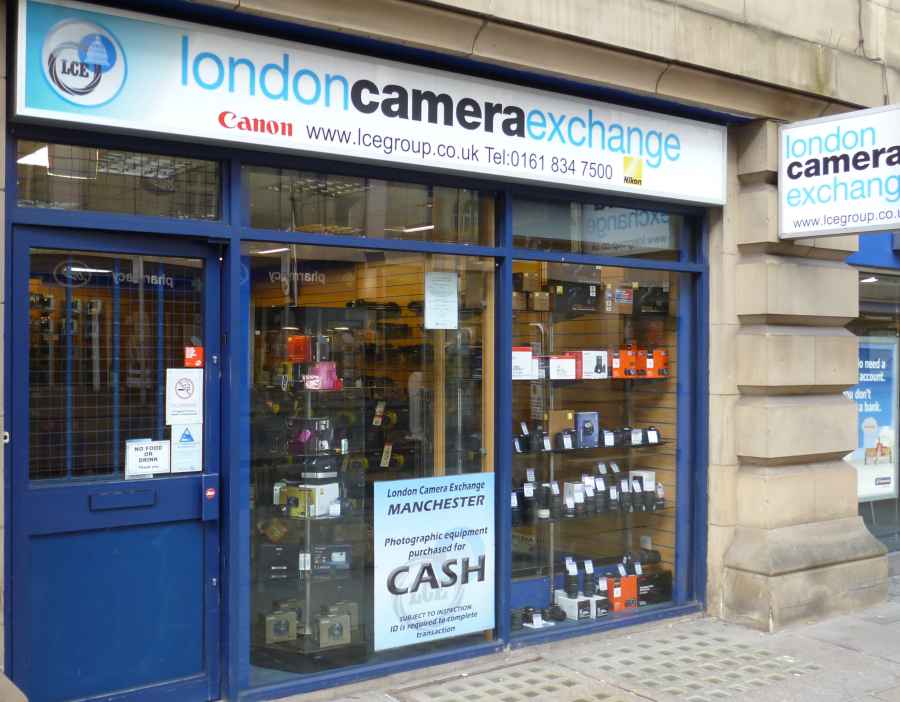Last month, the LCE relocated its Manchester shop to a former store run by Jacobs, a chain which closed down last year
Formed in the 1950s, LCE operates 28 stores across the country from Manchester to Plymouth.
It is now the largest photographic chain in the UK, in terms of store numbers.
LCE managing director Nick Richens said the chain has reaped huge benefits from the recent demise of Jessops which, at the time of its collapse in January, operated 187 shops.
‘We are making hay while we can,’ said Richens in an interview with Amateur Photographer.
LCE’s branch on the Strand in London has seen the largest sales uplift since Jessops went belly-up and is the most profitable outlet in the chain’s network.
Despite recent success, however, LCE has not been tempted to bid for any former Jessops stores and is treading carefully concerning any future expansion.
Richens prefers to wait until the end of the summer before gauging ‘real potential for expansion’.
‘I think we are having a bit of a honeymoon period… it will be in six months time, when the Jessops legacy has worn off, that the challenge starts.’
Loyal, knowledgeable staff
Richens puts LCE’s success down to offering sound customer advice and maintaining loyal, knowledgeable, staff – one of whom is as ‘enthusiastic’ as ever after 50 years at the firm.
Amid speculation over Jessops’ comeback, LCE says it would welcome any competition from Peter Jones who is reported to be planning to re-open up to 30 Jessops stores.
‘You need a presence in the high-street,’ said LCE’s marketing and communications manager Adrian Deary.
Nor does he view as a threat the expected re-launch of the Jessops website, though he admits LCE’s own site is ‘not particularly active’ – making up less than 1% of overall trade.
Rather, it serves as a valuable tool to pull customers into high-street shops, where ‘duck-and-dive’ deals are done with customers over bundles, often on the spot, added Richens.
However, like other UK retailers, LCE sees cheap competition from foreign-based websites as one of the biggest threats and warns that customers risk not being given a warranty when buying through the ‘grey’ market.
Though LCE bosses concede that a high-street shop is never going to be the cheapest route for customers, they stress that buying off the web can also mean consumers receive misleading advice about photographic equipment.
They recount the case of a man who bought online when looking for camera for close-up photography – only to sell it in a high-street store once he realised it was actually a ‘macro lens’ he was after, not an expensive DSLR with a zoom.
‘It’s easy for people to buy things online but much harder to sell them the right thing.’
Second-hand kit crucial
The LCE website also helps deliver one of the chain’s biggest weapons, second-hand equipment, which is listed on the site alongside new kit, and sold in-store where customers are invited to exchange their existing gear for cash, or part-exchange.
Lenses hold their value particularly well for customers wanting to part-exchange, explained Deary.
New custom from students and videographers seeking a DSLR with video capability, such as the Canon EOS 7D, has also boosted store sales.
As far as traditional customers are concerned, LCE says its core market remains the consumer spending around £500 on DSLR kit.
Popular models include Canon’s EOS 650D and Nikon’s D3200.
LCE began life as a photography studio in Guildford, Surrey, when staff noticed customers expressing an interest in the equipment being used.
Clients then began to trade in some of their old gear.
RELATED ARTICLE







